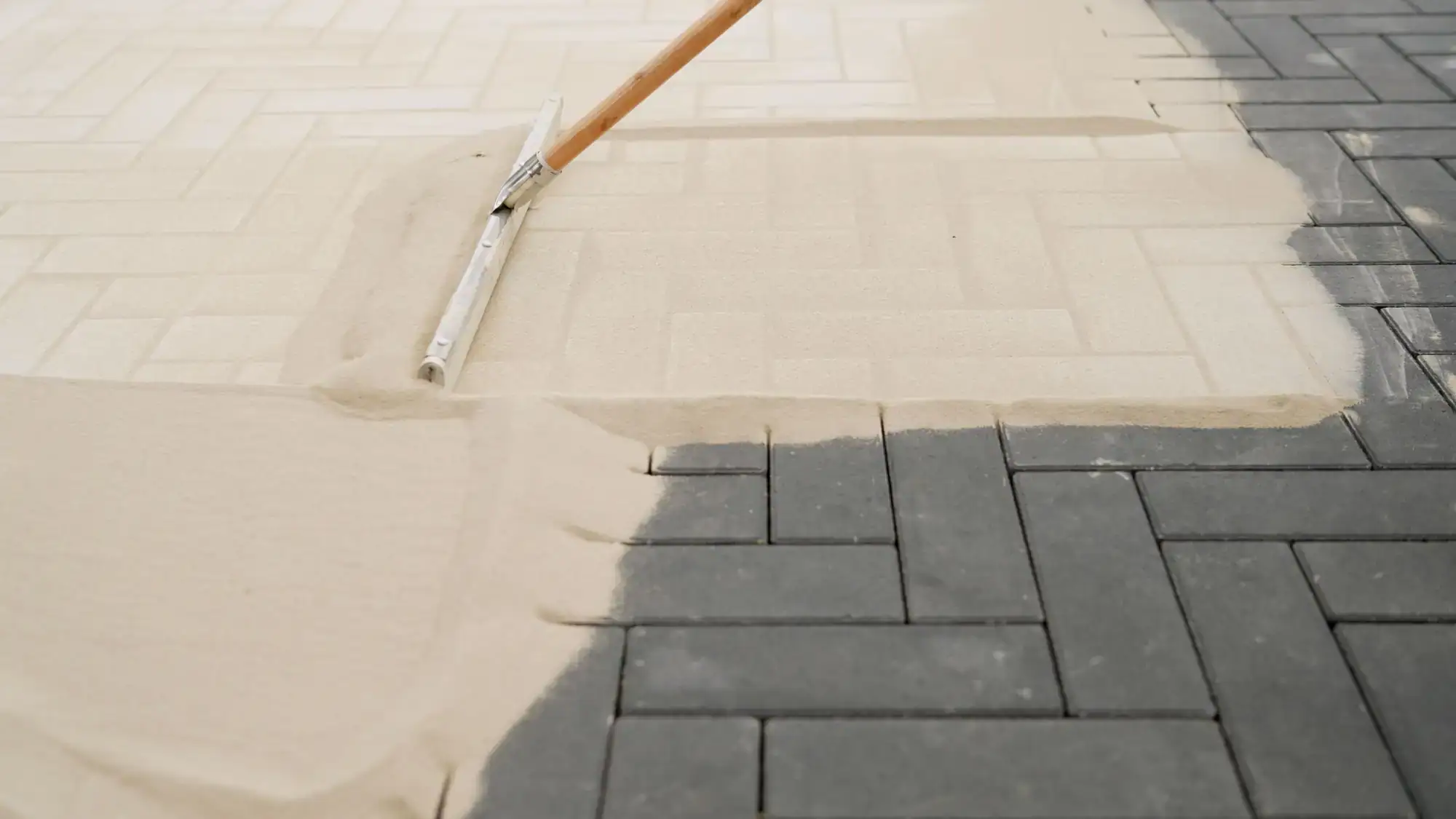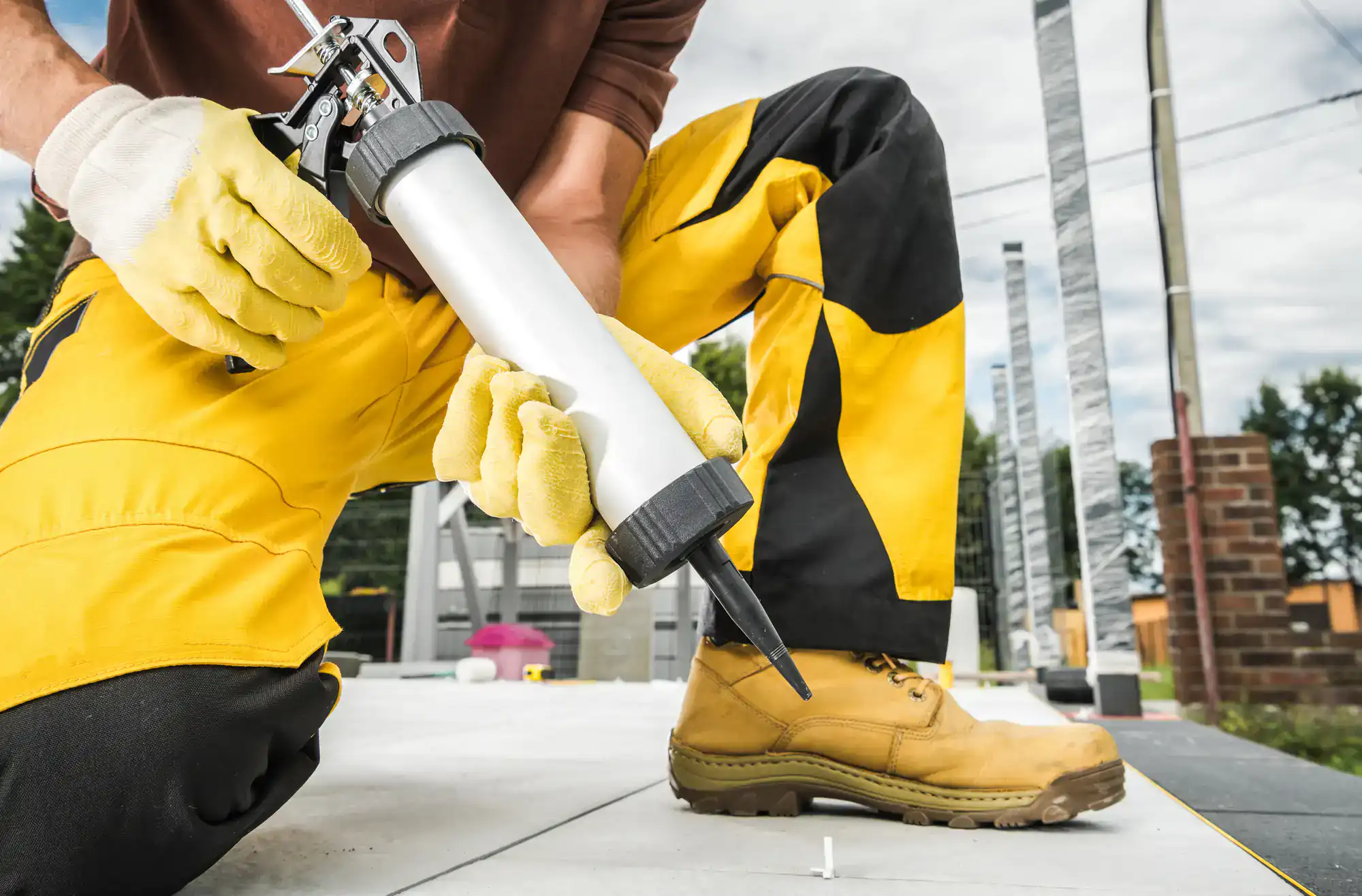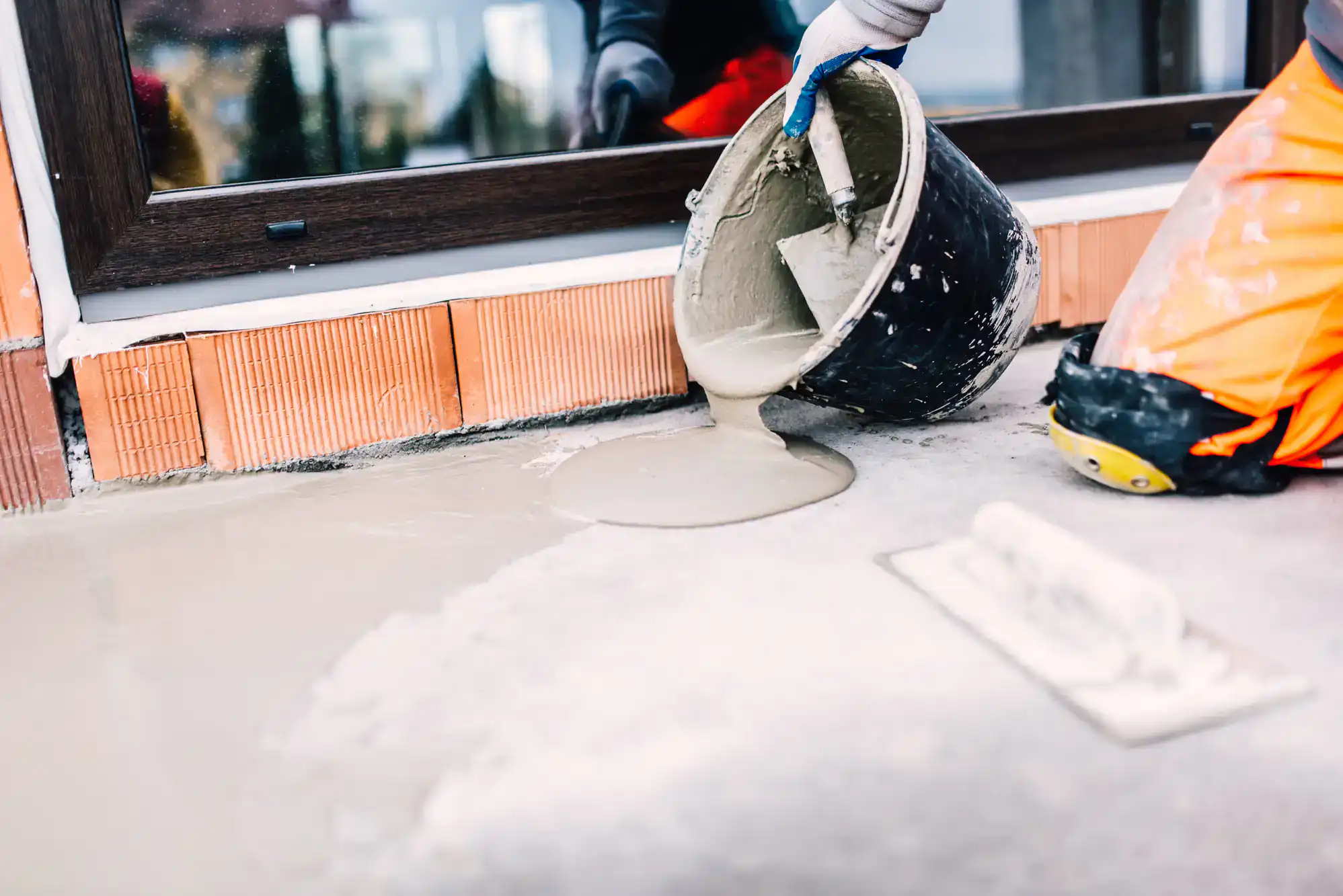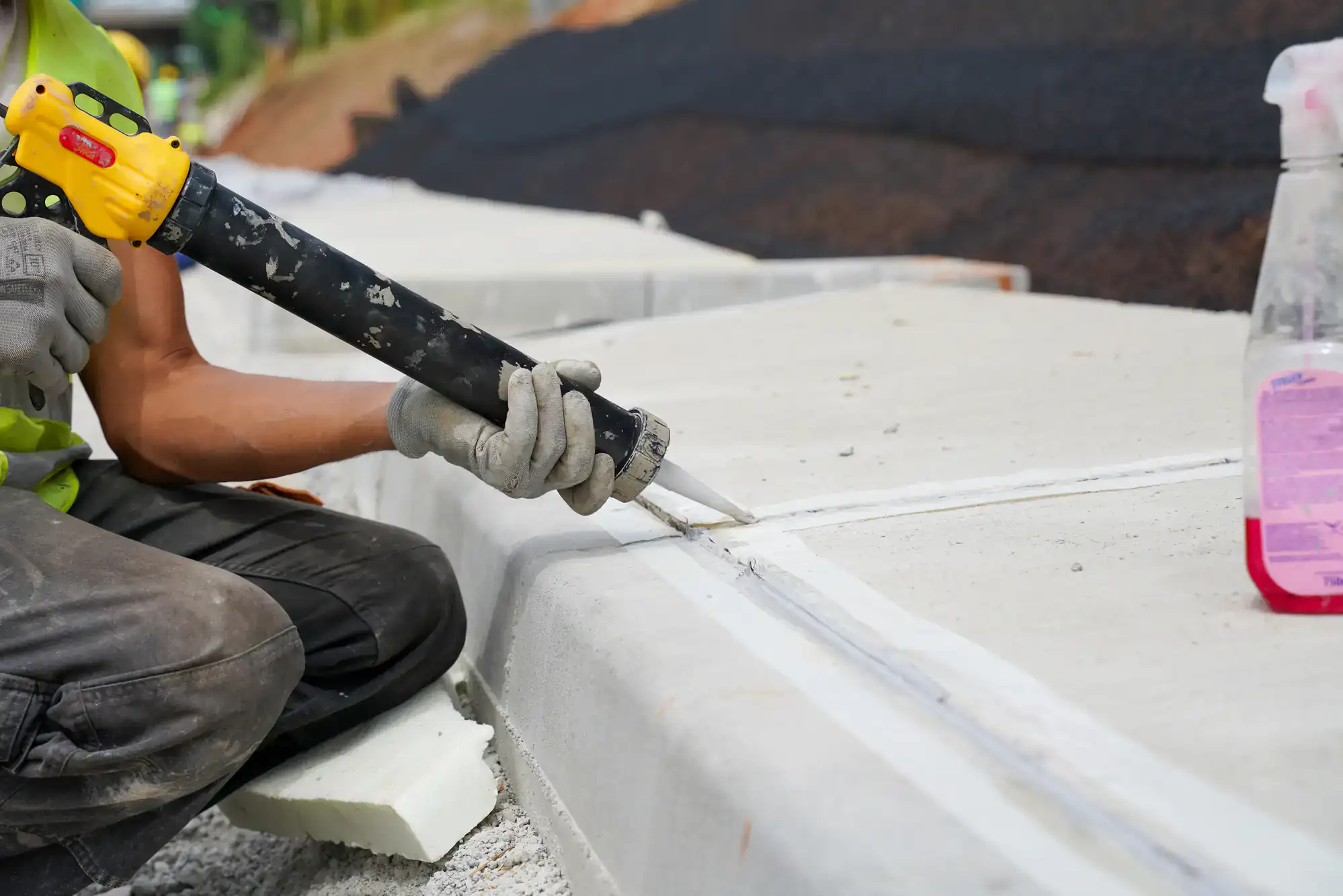Concrete Sealing in Pinecrest, FL
Stop Moisture Before It Destroys Your Concrete

Hear from Our Customers

Professional Concrete Sealing Pinecrest
When your concrete is properly sealed, you’re done worrying about water stains creeping across your garage floor or that musty smell building up in your warehouse. No more watching helplessly as oil stains set permanently into porous concrete.
Your sealed floors repel moisture instead of absorbing it. Spills wipe up easily instead of soaking in. The constant battle against mold and mildew becomes a thing of the past.
You get floors that look professional and stay that way, even through Florida’s wettest seasons. That’s what happens when moisture never gets the chance to penetrate in the first place.
Concrete Sealing Contractor Pinecrest FL
We’ve been solving moisture problems for Pinecrest property owners who understand that Florida’s climate demands more than basic concrete protection. We’re not the contractors who show up unprepared or disappear when humidity levels spike.
We’ve seen what happens when concrete sealing gets rushed or done wrong in South Florida’s conditions. That’s why we test moisture levels before every application and use climate-controlled processes that actually work in 75%+ humidity.
Pinecrest’s upscale properties deserve contractors who understand both the technical requirements and the aesthetic standards. We deliver both, every time.

Concrete Sealing Process Pinecrest
First, we test your concrete’s moisture levels using ASTM standards. Florida’s humidity means we can’t guess – we measure vapor emission rates and check for existing moisture problems before touching your floors.
Next comes proper surface preparation. We etch the concrete to maximize penetration and remove any contaminants that could interfere with sealing. This step gets skipped by contractors cutting corners, but it’s critical for long-term performance.
Then we apply professional-grade sealers using climate-controlled conditions. We regulate humidity levels during application and control temperature to prevent the thermal shock that ruins so many sealing jobs in South Florida. The sealer penetrates up to 1/4 inch deep, creating a permanent moisture barrier that works even when humidity spikes.

Ready to get started?
Moisture Control Floors Pinecrest FL
Your concrete sealing includes moisture testing, proper surface preparation, professional-grade sealer application, and anti-microbial protection that prevents mold growth under floor coverings. We use nanotechnology coatings that increase your concrete’s tensile strength by up to 30% while creating a hydrophobic barrier.
In Pinecrest’s climate, standard sealing approaches fail because they don’t account for our 72-76% relative humidity levels and daily temperature swings of 25 degrees. We use vapor-tolerant systems and extend curing times to match local conditions.
You get floors that resist oil stains, chemical spills, and water penetration. The sealer cures in 6 hours, but we don’t rush the process. Proper preparation and application timing make the difference between protection that lasts years versus coatings that fail within months.

How long does concrete sealing last in Florida’s humid climate?
Professional concrete sealing typically lasts 5-10 years in Florida when applied correctly, but this depends entirely on the quality of installation and environmental conditions. DIY sealers often fail within 1-2 years because they can’t handle our humidity levels.
The key is using the right sealer for Florida conditions and applying it when moisture levels are properly controlled. We test your concrete’s vapor emission rate before sealing and only proceed when conditions are right. Rushing this process leads to trapped moisture and early failure.
High-quality penetrating sealers that we use actually become part of the concrete structure, forming permanent chemical bonds that don’t break down like surface coatings do in humid conditions.
Can you seal concrete that already has moisture problems?
Yes, but we have to address the moisture source first. Simply applying sealer over existing moisture problems will trap water and make the situation worse, potentially causing the sealer to fail or even damage your concrete.
We start with comprehensive moisture testing to determine whether you’re dealing with surface condensation or deeper moisture migration issues. If it’s condensation from humidity, we can often solve this with proper dehumidification and sealing. If groundwater is seeping up through the slab, we need to address drainage issues first.
Sometimes we’ll recommend moisture mitigation systems that actually work with existing moisture rather than trying to block it completely. The right approach depends on your specific situation and moisture test results.
Why do some concrete sealers fail in South Florida?
Most sealer failures happen because contractors don’t account for Florida’s extreme humidity and temperature fluctuations. When humidity exceeds 75% during application, many coatings simply won’t cure properly, leading to bubbling, peeling, or poor adhesion.
Surface preparation is another major failure point. Concrete needs to be properly etched and cleaned before sealing, especially in our climate where moisture can interfere with the chemical bonding process. Skipping this step or doing it incorrectly almost guarantees failure.
The biggest issue is timing. Concrete needs 30-60 days minimum curing time in Florida before sealing – much longer than in drier climates. Contractors who rush this process trap moisture in the concrete, causing the sealer to fail from underneath.
What’s the difference between penetrating and topical concrete sealers?
Penetrating sealers soak into the concrete and create protection from within, while topical sealers form a protective layer on the surface. For Florida’s conditions, penetrating sealers typically perform better because they’re less likely to fail when moisture levels fluctuate.
Penetrating sealers work by filling the pores in your concrete with protective compounds that repel water while still allowing the concrete to “breathe.” This prevents the pressure buildup that can cause topical sealers to peel or bubble in humid conditions.
Topical sealers can provide excellent protection and aesthetic benefits, but they require more careful application timing and environmental control. We choose the right type based on your specific needs, exposure conditions, and performance requirements.
How do you prepare concrete for sealing in humid weather?
Proper preparation in Florida requires controlling both surface conditions and environmental factors. We start by testing the concrete’s moisture content and won’t proceed until levels are below 4 pounds per 1,000 square feet over 24 hours – the industry standard for safe sealing.
We use dehumidifiers and fans to create the right conditions, maintaining 45-55% humidity levels during application. Temperature control is equally important – we avoid sealing during the hottest parts of the day when thermal shock can interfere with proper curing.
Surface preparation includes thorough cleaning and etching to maximize sealer penetration. We remove all contaminants, oils, and existing coatings that could interfere with bonding. This preparation phase often takes longer than the actual sealing, but it’s what separates professional results from failed DIY attempts.
Is concrete sealing worth the investment for commercial properties?
Absolutely. Commercial concrete sealing typically pays for itself within 2-3 years through reduced maintenance costs and extended floor life. Unsealed concrete in commercial settings absorbs stains, requires frequent cleaning, and eventually needs replacement much sooner.
Sealed floors are dramatically easier to maintain – spills wipe up instead of soaking in, and regular cleaning becomes simple mopping instead of intensive scrubbing or pressure washing. This saves both time and money on maintenance crews and cleaning supplies.
The bigger benefit is avoiding costly repairs and replacements. Properly sealed concrete can last decades instead of years, and you avoid the business disruption that comes with major floor renovations. For most commercial properties, sealing is essential protection, not optional maintenance.
Other Services we provide in Pinecrest





